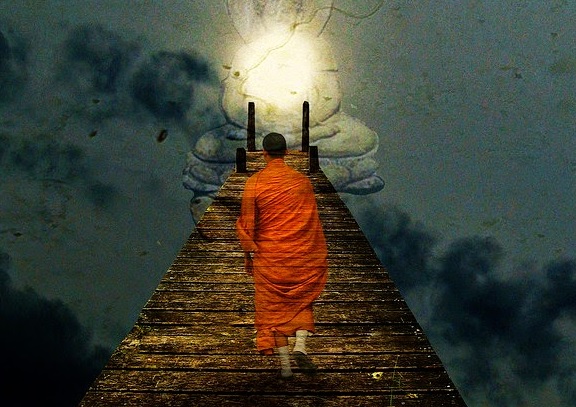This is part 10 of Bhagavad Gita Weekly series. Thank you for making an effort to read the Gita with me.
Like I mentioned in one of my earlier posts, the commentary of the Gita you see here are only meant to give you a bird’s-eye view of this treasure of knowledge passed on by Lord Krishna to Arjuna and for the benefit of this entire world. My attempt here is to inspire myself to study the Gita over and over again while making a small attempt to inspire others to read it as well.
So far we have gone through the whole of chapter 1 and until verse 20 of the chapter 2 in the last 9 parts in this series. You can read all the previous posts by clicking here and the very last one by clicking here.
In the last part, we stopped at the following verse where the eternal nature of the soul is established,
na jāyate mriyate vā kadāchin
nāyaṁ bhūtvā bhavitā vā na bhūyaḥ
ajo nityaḥ śhāśhvato ’yaṁ purāṇo
na hanyate hanyamāne śharīre
“the soul is neither born, nor does it ever die; nor having once existed, does it ever cease to exist. The soul is without birth, eternal, immortal, and timeless. It is not destroyed when the body is destroyed.”
Now, let’s continue from verse 21.
Jump to the Commentary for Chapter 2, verses 21 to 26
Commentary for Chapter 2, verses 11 to 15
Lord Krishna says that the soul is neither born, nor does it ever die; nor having once existed, does it ever cease to exist. The soul is without birth, eternal, immortal, and timeless. It is not destroyed when the body is destroyed.
Lord Krishna continues in the verse 21, “O Partha, how can one who knows the soul to be imperishable, eternal, unborn, and immutable kill anyone or cause anyone to kill?”
Having established the eternal nature of the soul and that the soul cannot be created or destroyed, even by the Supreme God, Lord Krishna now goes on to ask Arjuna, addressing him as Partha – the son of Kunti Devi, how can one who knows the soul to be imperishable, eternal, unborn and immutable kill anyone or be the cause for anyone to kill.
We are so used to, or rather conditioned to, think that “I” am the doer. But who am “I”?
“I” am not this body, but “I” am the soul, the atma which is, as explained by Lord Krishna, the eternal, unchangeable consciousness. Atma is never the doer, it is always the silent witness through all the actions that is being carried out by the physical body. Atma is like the center, the axis, on which our physical body revolves. Just like how the center of a spinning wheel is always stationary, the center of us, which is the atma, is always stationary, never changing and existing forever. It is the very existence itself, it is the very consciousness itself.

One who knows that reality that the soul is not the doer and that such a soul can never be destroyed, are realised masters who clearly see that fundamental difference between the body and the soul. Such a person can neither kill anyone nor be the cause for anyone to kill. Through this, Lord Krishna is trying to elevate Arjuna to that level of consciousness.
As we already saw in earlier posts in this series, the Atma is the minute, subtler than subtlest particle of Para Brahman, the Supreme God. That atma / soul carries all the qualities of that Brahman. In that sense, the soul is already enlightened.
We may wonder, if the soul is already enlightened, why don’t we feel enlightened? The simplest answer is, it is because of our “avidya”, ignorance, and as a result, the misconception of the essential difference between the “I” and the physical body, that “I” am not this body. But “I” am the soul, the atma.
We must understand the context in which Lord Krishna says “hanti” (kill) in this verse. Lord Krishna is not asking Arjuna or us, the devotees, to kill anyone. The whole Gita is happening at the Kurukshetra battlefield when Arjuna was griefstriken after seeing his grandfather, Bhishma and gurus like, Dronacharya, standing to fight him. Lord Krishna is teaching Arjuna through the Gita why he is not right in choosing to not fight this battle for Dharma.
Killing of any living being is considered a strictly abominable action according to Vedas except in exceptional situations.
Lord Krishna is pointing out the essential nature of the soul and the body, and that, every action should be performed with the understanding that the soul, our very essence, is not the doer, rather it is just a witness of every actions, and throughout, it remains unchanged and unmoved.
Continuing to explain the nature of the soul, Lord Krishna says in the next verse (22), “Just as a person sheds worn out clothes and wears new ones, at the time of death, the soul sheds off its worn out body and enters a new one.”
Here, Lord Krishna talks about the reincarnation. Our soul never dies, it only moves from one physical body to another based on one’s karma. Lord Krishna compares this to how one would change clothes.
We change our clothes everyday or even few times a day, however, whichever clothes we wear, we remain the same. When our clothes become old, we discard them with no hesitation and replace it with new ones. We still remain the same.
The same was explained earlier in chapter 2, verse 13, “As the embodied soul continuously passes, in this body, from boyhood to youth to old age, the soul similarly passes into another body at death. A sober person is not bewildered by such a change.”
Just like how we change our clothes, soul chooses another physical body after the death of one body, without being modified by any of these changes.
Lord Krishna continues to elaborate on the imperishable nature of the soul in the next verse (23), “weapons cannot shred the soul, nor can fire burn it. Water cannot wet it, nor can the wind dry it.”
As we have seen before, the atma is a minuscule part of the Para Brahman himself. It is so small, subtler than subtlest and undestroyable that weapons cannot cut it, the fire cannot burn it, water cannot moist it and the wind cannot dry it. It is unchangeable and unmodifiable.
Therefore, Lord Krishna says in the next verse (24), “the soul is unbreakable and insoluble; it can neither be dampened nor dried. It is everlasting, in all places, unalterable, immutable, and primordial.”
Lord Krishna continues to explain why the soul is eternal. Just like how the Supreme God himself is indestructible, the soul, being the very essential, but subtle part of that Supreme, is also indestructible. It is subtler than the subtlest, thus, neither any weapon can shred it, nor fire can burn it, nor the water can moisten it, nor the wind can dry it. Because, none of these primal forces on this planet can cause any effect on the atma, it is forever unbreakable and insoluble. It can never be dampened nor be dried.
The only thing that is affected by all these forces like air, water, fire, etc. is our physical body, not the soul. The soul / atma is nitya – eternal. It is sthanuh – unchangeable. It is sarva-gatah – all pervading being such a subtlest living entity. It is acalah – because it is unchangeable and eternal, it is permanent and it is sanatana – everlasting and existing for an infinite time. Thus the atma is the very timeless, formless, limitless, endless living entity that is all pervading and it spreads its fragrance all over us and through us!
the atma is the very timeless, formless, limitless, endless living entity that is all pervading and it spreads its fragrance all over us and through us!
In the next verse (25), Lord Krishna says to Arjuna, “it is said that the soul is invisible, inconceivable and immutable. Knowing this, you should not grieve for the body.”
Lord Krishna continues to explain to Arjuna why there is no reason for him to lament in this verse by telling him that, the soul is invisible, inconceivable and immutable!
According to Shvetashvatara Upanishad, the size of the soul is so miniscule as explained in the following verse:
bālāgra-śata-bhāgasya
śatadhā kalpitasya ca
bhāgo jīvaḥ sa vijñeyaḥ
sa cānantyāya kalpate
Divide the tip of a hair into one hundred parts and divide those each parts again into another one hundred parts. Each of those parts is the measurement of an individual spiritual soul.
Such a soul which is subtler than the subtlest is invisible, inconceivable and is immutable. The soul / atma is invisible and inconceivable because it is inaccessible by any of our senses.
Katha Upanishad explains in the following verse that the sense are beyond the objects of senses, beyond the senses is the mind, even beyond that mind is the intellect and the soul / atma is even beyond that intellect.
ndriyebhyaḥ parā hyarthā arthebhyaśhcha paraṁ manaḥ
manasastu parā buddhirbhuddherātmā mahān paraḥ
“Beyond the senses are the objects of the senses; subtler than the objects of the senses is the mind. Beyond the mind is the intellect; and subtler than the intellect is the soul.”
Because is it deeper than our senses, mind and intellect, subtler than the subtlest, it is invisible, unthinkable and inconceivable. However, just like how we can’t see God, as he is all pervading, the atma cannot be seen, nor touched, but can only be felt. Attaining that knowledge, recognising the presence of that atma and the realisation that, we are not this body, but the atma, is the right knowledge that leads to enlightenment and eternal happiness. One who knows that, there is no reason to grieve for the body.
Recognising the presence of that atma and the realisation that, we are not this body, but the atma, is the right knowledge that leads to enlightenment and eternal happiness.
By explaining the eternal, indestructible nature of the soul repeatedly in various ways, Lord Krishna is establishing the unbreakable truth without any doubt.
The same has been explained in the Vedas in various ways. It is how much importance our culture give it to this fundamental difference between our body and the soul that true happiness is found only within and not elsewhere.
In the next verse, Lord Krishna tells Arjuna, “if, however, you think that the soul will always be born and die forever, you still have no reason to lament, O mighty-armed.”
One of the best things I love about our culture and Hinduism (Sanatana Dharma) is this openness and our God’s genuine love for his devotees. Unlike other religions, we are not born sinners, rather, we are all tiny gods (anu-sat, anu-chit, anu-ananda), with all the qualities of the same god so long as we realize the essential truth about life as Lord Krishna explains. Aham Brahmasmi – I am Brahman – is what we believe in.
Unlike other religions, we are not born sinners, rather, we are all tiny gods (anu-sat, anu-chit, anu-ananda), with all the qualities of the same god so long as we realize the essential truth about life as Lord Krishna explains. Aham Brahmasmi – I am Brahman – is what we believe in.
Lord Krishna could have simply told Arjuna that he must follow this or that, but our Gods never do that. Vedas require all of us to constantly question and investigate deep into ourselves and find our own truth and to follow what truly makes sense to us, instead of being a blind follower. That is what most of the Abrahamic religions follow, but not Hinduism. We are not blind followers, but followers of truth, the truth which is found within us.

Lord Krishna, by telling Arjuna that, even after all these explanations on the nature of atma being eternal etc, if Arjuna still believes that it is the soul that is born and dies forever, even then, there is nothing to grieve for.
There are many streams of philosophical thoughts exist in our culture. While the Vedas state that the atma is eternal, indestructible, unchangeable, everlasting living entity as explained by Lord Krishna, other philosophical thoughts believe that the atma is subjected to change from birth to birth.
If Arjuna were to follow the belief that, the atma changes from birth to birth, Lord Krishna tells him, even then, he should not grieve.
Krishna explains the reason in the next verse which we will see in next week.
Let us conclude here for now.
ॐ पूर्णमदः पूर्णमिदं पूर्णात्पुर्णमुदच्यते
पूर्णस्य पूर्णमादाय पूर्णमेवावशिष्यते ॥
ॐ शान्तिः शान्तिः शान्तिः ॥
Om Puurnnam-Adah Puurnnam-Idam Puurnnaat-Purnnam-Udacyate
Puurnnasya Puurnnam-Aadaaya Puurnnam-Eva-Avashissyate ||
Om Shaantih Shaantih Shaantih ||
My Pranams to you!

